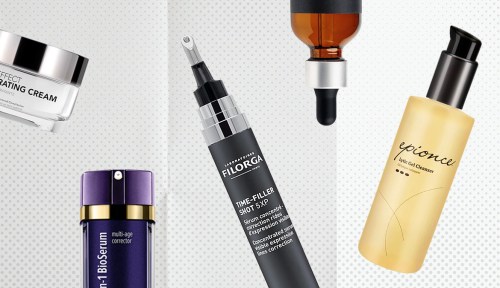Our editors independently select these products. Making a purchase through our links may earn Well+Good a commission
Time and time again dermatologists tell us that SPF, retinoids, and antioxidants are the holy trinity of skin care. And for that antioxidant, people often turn to vitamin C. While vitamin C is a great ingredient that protects your skin from environmental stressors, Ivy Lee, MD, a board-certified dermatologist based in Pasadena, California, says it’s not for everyone.
Experts in This Article
board-certified dermatologist
“The tough thing with skincare is that not one size fits all—it depends on tolerability,” says Dr. Lee. Whether the antioxidant someone uses should be vitamin C or not “really depends on the individual’s skin,” she says. “Is it dry? Does it tend to be more irritated? Is it more sensitive? Do they live in a harsher climate?”
For anyone who answers “yes” to any of the above and knows that they have a hard time tolerating potentially irritating side effects of vitamin C, Dr. Lee says to turn to niacinamide as a vitamin C alternative.
“Niacinamide is a very, very hot ingredient to use with increasing evidence of its benefit as an antioxidant,” says Dr. Lee. “For those who can’t tolerate vitamin C…niacinamide is a wonderful alternative. It’s a form of vitamin B3. It’s known to be very gentle on the skin, it really improves the skin barrier function and decreases inflammation.” Inflammation is often present in people with eczema, acne, and rosacea. “We know that niacinamide in those patients tends to have a very calming and anti-inflammatory effect.”
Learn more about caring for rosacea:
Vitamin C and niacinamide are very similar. They’re both antioxidants, “so they decrease the oxidative stress and damage that we get from environmental factors, like UV radiation from being outside, pollution, and smoking,” says Dr. Lee. They also both improve the signs of premature aging like wrinkles and fine lines, increase collagen production, and decrease hyperpigmentation. Because vitamin C is a mild acid, it also has some exfoliating benefits that niacinamide lacks, making it more effective than niacinamide at brightening the skin and removing hyperpigmentation. However, niacinamide one-ups vitamin C with its ability to hydrate the skin and repair skin barrier function.
Dr. Lee says you can incorporate niacinamide into your skin-care routine either on its own as a serum or combined with other ingredients in a serum, moisturizer, sunscreen—really, anywhere you can find it. “I like products that serve multiple functions and have multiple key ingredients,” she says.
Shop 5 best niacinamides to use as a vitamin C alternative
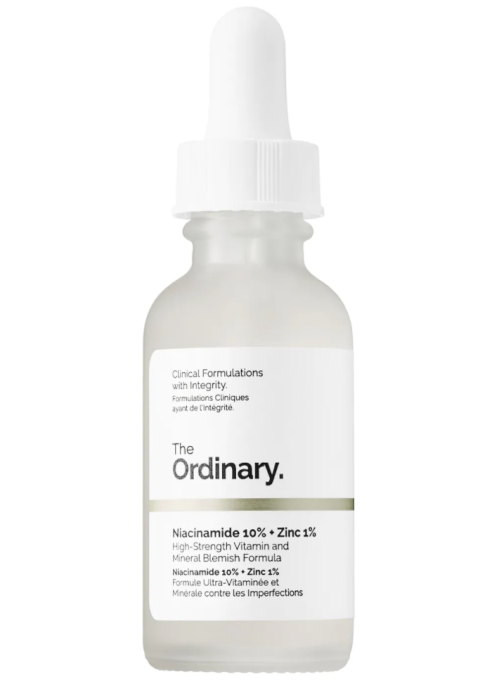
The Ordinary Niacinamide 10% + Zinc 1% Oil Control Serum — $6.00 to $11.00
“The Ordinary has a niacinamide plus zinc formulation that I really like,” says Dr. Lee. “You can use that twice a day or once a day. And it’s something that’s very, very gentle and easy to afford.” While the niacinamide is working to brighten and clear the complexion, zinc helps to regulate excess sebum activity.
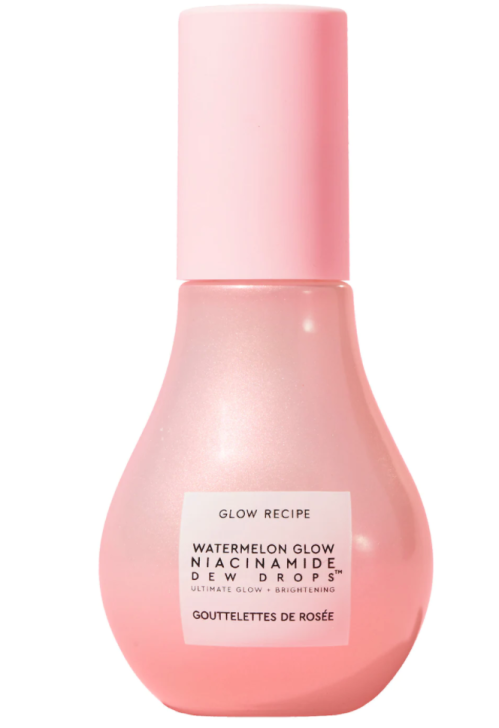
Glow Recipe Watermelon Glow Niacinamide Dew Drops — $34.00
This Glow Recipe serum combines niacinamide with hydrating watermelon and hyaluronic acid to leave your skin nice and dewy. Plus, it leaves you with a reflective glow without using any mica or glitter.

Allies of Skin Prebiotics & Niacinamide Pore Refining Booster — $68.00
Revive dull skin with this blend of niacinamide, prebiotics, and probiotics. They work together to refine the appearance of pores and leave the skin stronger and more radiant.
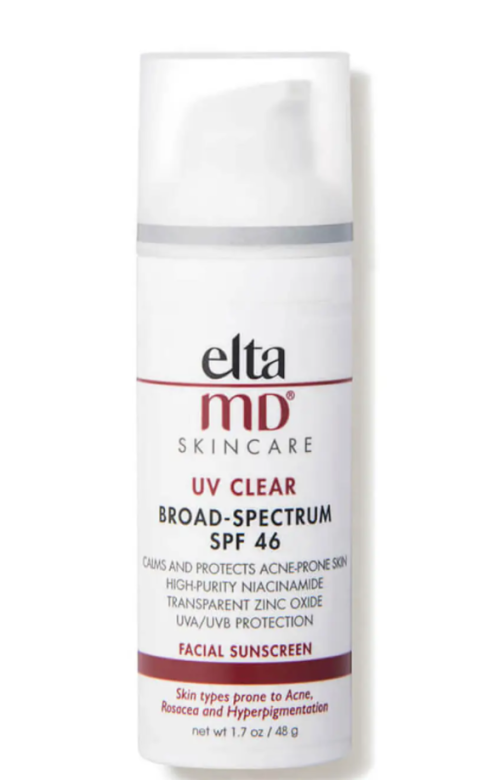
EltaMD UV Clear Broad-Spectrum SPF 46 — $37.00
“I like this moisturizing sunscreen with niacinamide because it’s so calming on the skin and very suitable for all different types of skin,” says Dr. Lee. “And as a dermatologist, anytime I can get someone to put on sunscreen is a major win for me. So if I can sell it as, ‘Hey, use this niacinamide to help with moisturizing your skin and it has SPF in it,’ fantastic.”
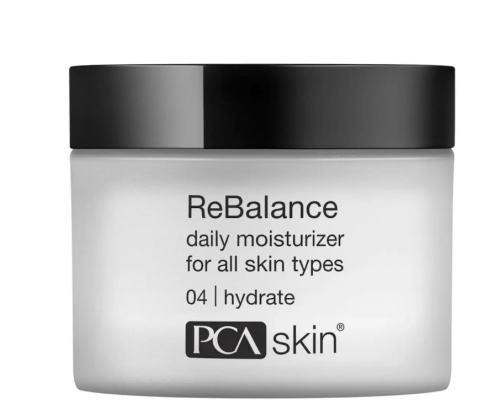
PCA Skin ReBalance — $53.00
This skin-calming moisturizer uses two forms of vitamin B—B5 and niacinamide—to hydrate the skin and repair damage to your complexion caused by everyday stressors. It also includes primrose and borage oils to soothe redness and diminish irritation.
Sign up for the Well+Good SHOP Newsletter
Get exclusive deals on wellness, beauty, fitness, and food products that have been hand-picked by our editors.
Got it, you've been added to our email list.



